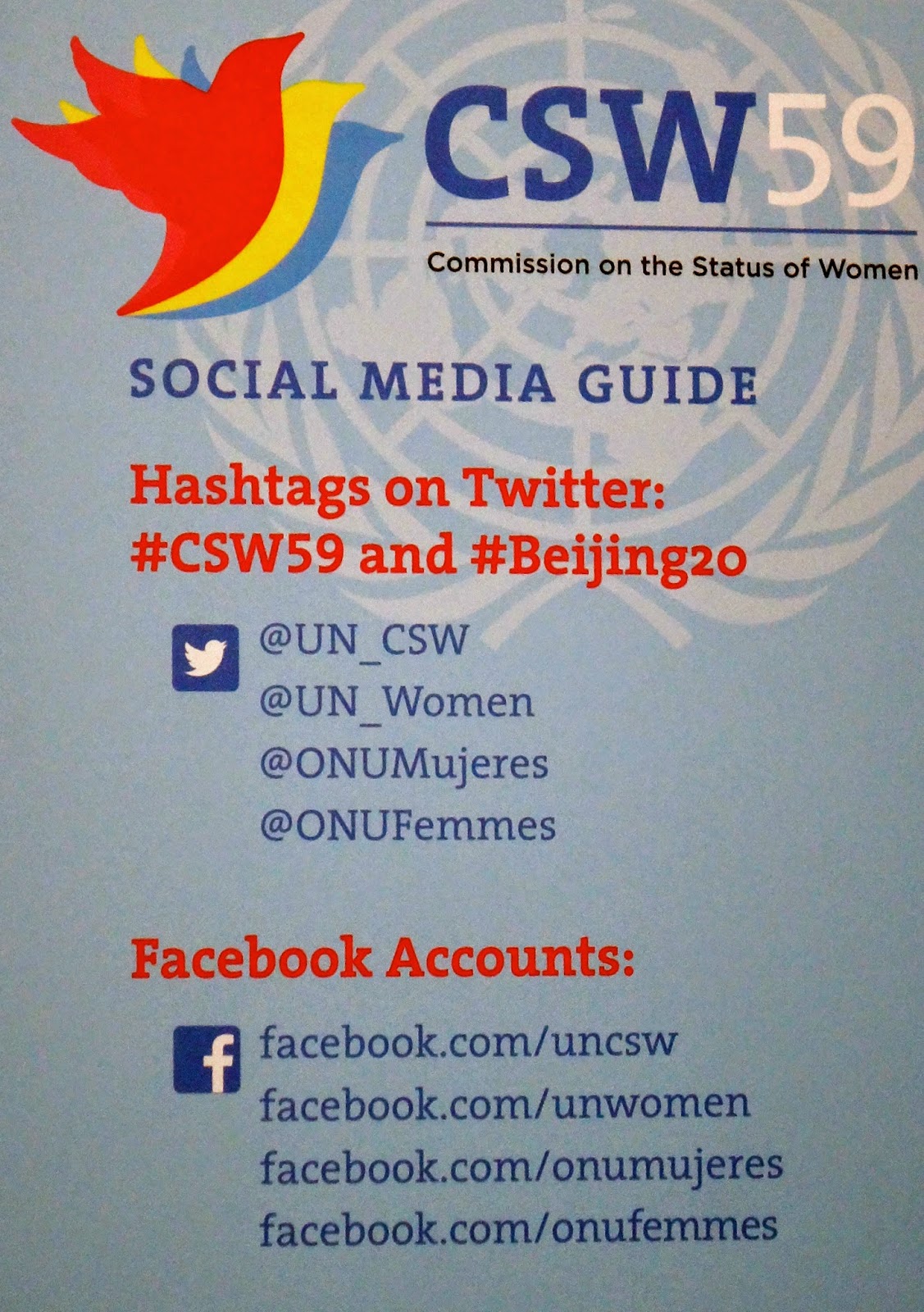 |
| Lelanda Lee at the U.N. |
UNCSW59 is the abbreviation for the 59th annual United
Nations Conference on the Status of Women (UNCSW) being held in New York City from
March 9 to 20. This year, for the first time, the Episcopal Church is
participating as an official
20-person delegation, led by Presiding Bishop Katharine Jefferts Schori.
The church received official
status as a non-governmental agency member of the UN’s Economic and Social
Council (ECOSOC) in May 2014.
For the Episcopal Church delegation the conference began on
March 7th with the Ecumenical Women orientation day filled with vibrant worship
led by the United Nations chaplain, the Rev. Dionne Boissière, greetings from
UN Women’s Executive Director Phumzile Mlambo-Ngcuka, panel discussions, and
workshops.
UNCSW is the principal global intergovernmental organization
working on gender equality and empowerment for women. The commission focuses on
issues such as including girls in education for all children, eliminating
violence against women and girls, improving maternal and childbirth health, and
empowering women to achieve political and social leadership roles.
This year’s UNCSW is particularly significant, because it is
also the 20th anniversary of the Beijing
Declaration and Platform for Action established in 1995 in Beijing at the
Fourth World Conference on Women. Implementing
the Beijing Platform for Women is this year’s UNCSW theme. However, as can be seen in a message
from Director Mlambo-Ngcuka to “step it up” for gender equality, the world
has fallen far short of its lofty goals established two decades ago, and women
together with men are called to action to make gender equity a reality.
 |
| Phumzile Mlambo-Ngcuka |
In September 1995, more than 3,000 people plus
representatives from 189 governments, meeting in Beijing, participated in
forums and intense discussions about human rights and equality for women and
girls worldwide. The Beijing Declaration and Platform arose out of those
conversations, covering 12
critical areas:
1. Women
and Poverty
2. Education
and Training of Women
3. Women
and Health
4. Violence
against Women
5. Women
and Armed Conflict
6. Women
and the Economy
7. Women
in Power and Decision Making
8. Institutional
Mechanisms for the Advancement of Women
9. Human
Rights of Women
10. Women and
the Media
11. Women and Environment
12. The Girl Child
Look familiar? Those 12 critical areas align with the 8
Millennium Development Goals (MDGs) that were identified by the United Nations
in 2000, listed below. The Chinese say, “women hold up half the sky,” and
achieving the MDGs relies upon empowering women and girls so that they can
contribute fully to improving life in their communities. From our Christian
perspective, we are called to respect the dignity of every human being, and it
is good stewardship to utilize fully all the resources God has given us.
Millennium
Development Goals (2000-2015)
1 To
eradicate extreme poverty and hunger
2 To
achieve universal primary education
3 To
promote gender equality and empower women
4 To
reduce child mortality
5 To
improve maternal health
6 To
combat HIV/AIDS, malaria, and other diseases
7 To
ensure environmental sustainability
8 To
develop a global partnership for development
UNCSW59 offers the opportunity for women from many
participating countries to put a human face on the critical issues facing women
and girls and to commit together to raise those issues when they return to
their home countries and communities.
I plan to blog and post photos daily from our activities in
this blog and to Tweet from @LelandaLee.
 |
| Social Media Encouragement |

No comments:
Post a Comment